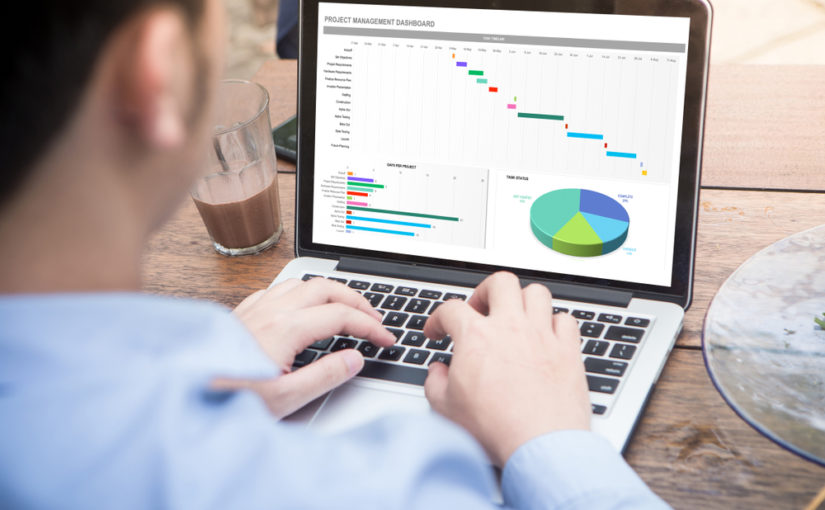Excel is fast becoming an essential tool in the toolkit of any analyst or employee in a large company. Its multi-functionality as both an organisational tool and, more fundamentally, a tool for data wrangling, representation and analysis. Excel skills are thus important to learn and then present adequately on your CV when writing your CV.
Excel skills will be an asset in your career. Make sure you are able to sell yourself using your CV or Resume by adequately putting skills such as Excel on them.
What does Excel or Sheets do
Excel is a program included in Microsoft Office. Its essential tool is the spreadsheet. But its comparative advantage with other spreadsheet tools was its use of formulas that allow a certain degree of automation of certain calculations. What is more, you can create charts or . To see some templates as to what is possible in Excel, you can look at some templates here.
Examples of what Excel can do includes :
- Maintaining a personal or professional budget, using formulas on cells making total expenditure and income independent variables for predicting your net gain per month.
- Making a To Do List for your colleagues and you.
- Creating charts of time-series analysis
- With add ons, using regression analysis and displaying crucial functions.
- Creating schedules of your employees if you don’t have a tracker app.
- And many more functions.
What Excel skills should I learn?
You should look to learn Excel skills based on what your interests or requirements are for your career. An accountant will have a different set of skills than a data analyst (even if the two will inevitably overlap). Some examples of Excel skills that are in demand or seen as signals that you are competent are :
- Vlookup : Vlookup is seen as one of the Excel formulas that, if you can master, you are ready to call yourself an intermediate user of some sorts. It helps locate data in a big excel sheet by
- PivotTables : Pivot Tables are a key function of Excel. They allow you to summarise and analyse large quantities of data.
- Conditional formulas (IF, IFS, SUMIF, etc.) : Excel can play the original role of the computer, that of a calculator based on a binary for of YES-NO or I-O logic games. The IF function is thus excellent if you want to see if certain conditions present themselves in a series of data or not. Taken to its zenith you will have a ferociously useful tool at your disposal.
- Macros : Macros are often talked about in Excel but many people do not understand them, let alone use them. They are a productivity tool of such. Macros can speed up Excel operations and automate them so that you do not have to do the “heavy lifting”. Macros tend to be an advanced function of Excel.
- VBA : If you know how to code in the language excel is written in too, its worth noting, as this is a highly sought after function.
There are a myriad of other Excel functions that you can use. Go over what kind of formulas are used in Excel and explore each and every single one of them within Excel itself. You also want to learn what the compatibility is between Google Sheets and Excel and how to use Google Sheets and LibreOffice Calc.
How should I put my Excel skills on my CV
This depends on the job and sector you are applying to. If you are applying to a sector where Excel skills are not used, you want to maybe include at most one small line saying you have intermediary/advanced Excel skills.
If your job is all about data and numbers, then you have to be more specific in a number of ways :
- What formulas and specific capacities of Excel have you learnt? For tips of where you got to, look up online Excel courses and the chapters they have to understand the terminology of what it is you can do in Excel. For example you can put that you have learnt to represent functions and charts in Excel, showing an intermediate level. Or you can say that you know Excel macros, or able to design templates for Excel.
- How often you have used Excel in previous jobs : while this is also going to be in your experience section of your CV, you want to be able to detail what projects you have concretely realised thanks to Excel, the nature of your position and how it relates to your skills in Excel, and so on.
- Look up your country’s or company’s different measures of a computer skill when it comes to software. Some countries will require you to specifically used a ordinal self-evaluation of your Excel skills from (e.g.) Beginner to Advanced. The most advanced users understand the Excel code and VBA. If you have taken online or in person university courses with Excel involve, list them!
Remember to also show off your required digital skills, whether its Excel or another program, alongside the education section. For example pointing out times you used Excel or stats package to analyse data in a certain way.

